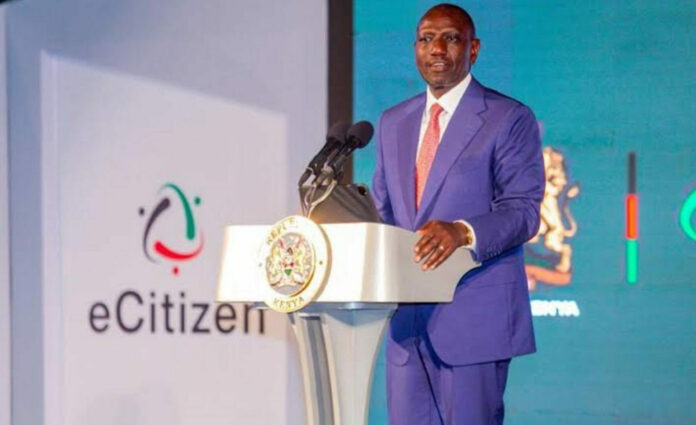The government of Kenya has little control of the e-Citizen platform that is now the collection portal for all government service fees.
This is according to a report by the Auditor General Nancy Gathungu. According to the report, e-Citizen is currently owned by private firms who have in turn allowed the government to use its services.
“Preliminary review of operations of the e-Citizen Government Digital Payments (GDP) platform indicate that, despite the strategic importance of e-Citizen, the government does not have full control of the system and [relies] significantly on the vendor for some critical functions,” the Auditor General states in the report.
These findings come as the onboarding of new services on the platform increase the amount of money collected through the platform for the government.
Currently, the government estimates that over Sh. 350 million in government services’ fees is collected through the platform every day.
State to renovate Gachagua’s Sh. 450 million residence with Sh. 600 million
The report points out that the platform’s current IT controls may not guarantee the integrity of the data processed through the system.
“Lack of full control of the system exposes the government to the risk of revenue leakage, lack of full accountability, system unavailability or downtime, security vulnerabilities and threats including lack of business continuity,” the report by the Auditor General states.
Gathungu further added in her report that with the platform being owned by private companies, the Government Digital Payment Units (GDPU) has found it tough to onboard some services on the platform. So far, the platform is reported to have up to 19,000 public services.
The report by the Auditor General further noted that despite the shift to digital payments via e-Citizen, the National Treasury is handling the reconciliation of the payments made and their settlements manually.
“Review of financial operations of the GDPU indicates that reconciliations and settlements were done manually,” the report noted, highlighting that this occurred on two days a week.
“This special audit is informed by the current strategic importance of e-Citizen in the financial architecture of the government. The special audit is expected to provide highlights on the credibility and reliability of the e-Citizen system, including assurance on whether data processed through the system is accurate and complete,” the Auditor-General stated in the report.








